
Professor Bipin Rajendran
Visiting Professor
Research interests
- Engineering
Biography
About
Bipin Rajendran is a Visiting Professor of Intelligent Computing Systems in the Department of Engineering, King's College London.
He received a B. Tech degree from I.I.T. Kharagpur in 2000, and M.S. and Ph.D. degrees in Electrical Engineering from Stanford University in 2003 and 2006, respectively. He was a Master Inventor and Research Staff Member at IBM T. J. Watson Research Center in New York during 2006-'12 and has held faculty positions in India and the US.
His research focuses on building algorithms, devices, and systems for intelligent computing systems. He has co-authored over 95 papers in peer-reviewed journals and conferences, one monograph, one edited book, and 59 issued U.S. patents. He is a recipient of the IBM Faculty Award (2019), IBM Research Division Award (2012), and IBM Technical Accomplishment Award (2010). He was elected a senior member of the US National Academy of Inventors in 2019.
His research has been supported by Engineering and Physical Sciences Research Council (EPSRC), the US National Science Foundation (NSF), the European Commission, the European Space Agency, Semiconductor Research Corporation as well as Intel, IBM, and Cisco. In 2022, he was awarded an Open Fellowship of the EPSRC.
Research Interests
- Hardware-software co-design
- Novel materials & devices
- Algorithms for event-driven computing
Further Information
Research

Communication & Information Engineering
Managing information and connecting human activities

Centre for Telecommunications Research
A global leader in telecommunications and data and information processing

Centre for Technology and the Body
Stories of embodied technology: from the plough to the touchscreen

Centre for Intelligent Information Processing Systems
Research centre focusing on intelligent information systems, encompassing hardware-software co-design, nanoscale information systems, signal processing, information engineering, and quantum information processing.

Climate & sustainability researchers at King’s
King's researchers working across climate and sustainability
News
King's joins UK's first brain-inspired computing innovation centre
King’s has joined the UK’s first Innovation and Knowledge Centre (IKC) dedicated to neuromorphic computing hardware, established following a £12.8 million...
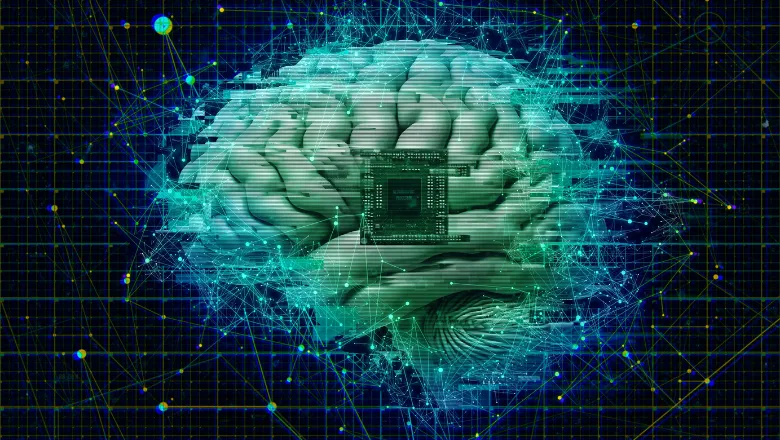
King's engineers awarded prestigious grant to make AI more energy efficient
A project to reduce the cost in developing complex models by a thousand times has been awarded a multimillion-pound grant from the Advancing Research &...
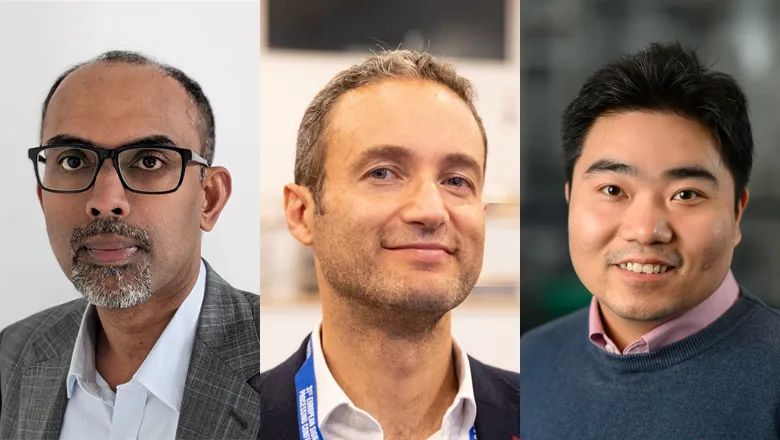
King's draws together expertise to make the world healthier and advance our understanding of intelligence
Two new multidisciplinary research institutes have been created at King’s to help tackle major challenges for society and find innovative ways to advance...

King's collaborates with Purdue University to turbocharge semiconductor and AI innovation
The Memorandum of Understanding will deepen existing ties between the two institutions to accelerate research and education.
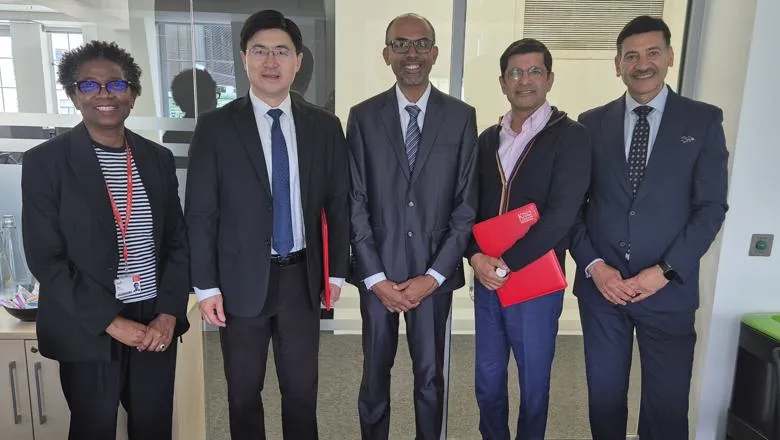
King's part of £80 million boost in AI research to deliver revolutionary new technologies
Nine research hubs across the UK will help underpin the country’s commitment to leading AI research, innovation and ethical deployment.

King's partners with industry leader Arm and UK Electronics Skills Foundation to solve UK's semiconductor skills shortage
The Innovate UK sponsored alliance will seek to bridge the gap between engineering education and industry expectations.
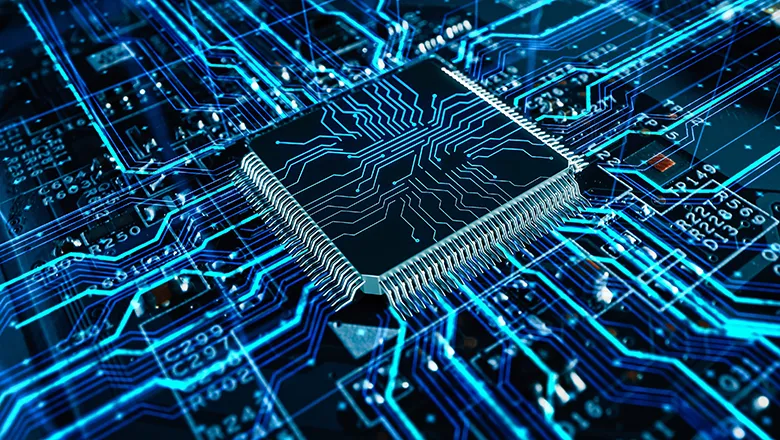
'Diversity is the key to innovation': King's ushers in next generation of engineers at first Girls into Electronics event
School age girls were invited to learn the basics of electronics and engineering at the Quad Labs earlier this month.
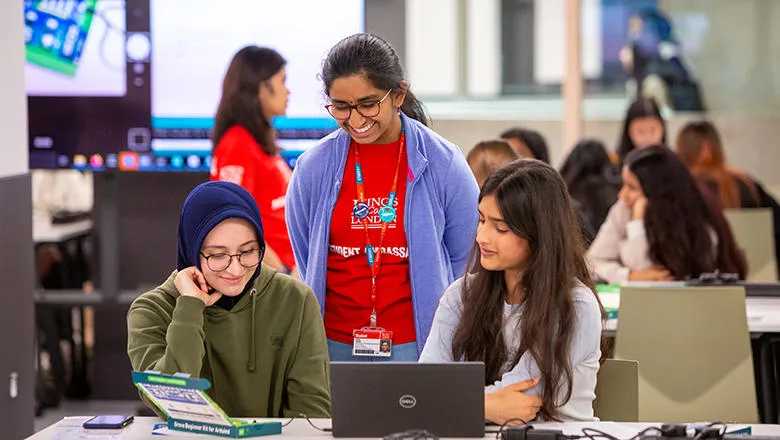
King's engineers to explore brain-inspired computing in 6G telecommunications
Neuromorphic computing holds significant potential for faster and greener telecommunications technologies.
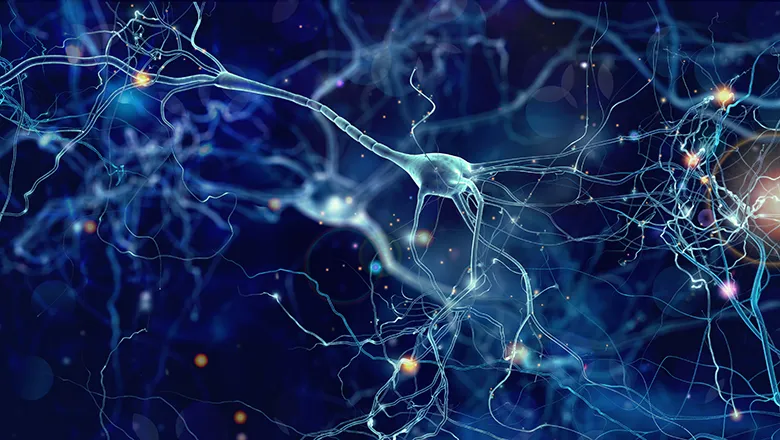
King's engineers awarded prestigious research fellowships to make AI more trustworthy and sustainable
Dr Bipin Rajendran and Professor Osvaldo Simeone have each won Engineering and Physical Sciences Research Council (EPSRC) Open Fellowships to research...
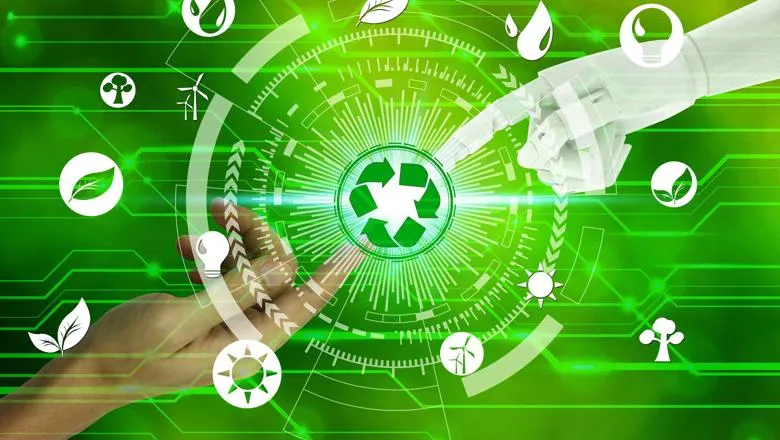
Batteries, Bletchley Park and the brain: Interview with King's new engineers
How can batteries tackle climate change? How will AI benefit society? What happens at the interface of science and engineering?
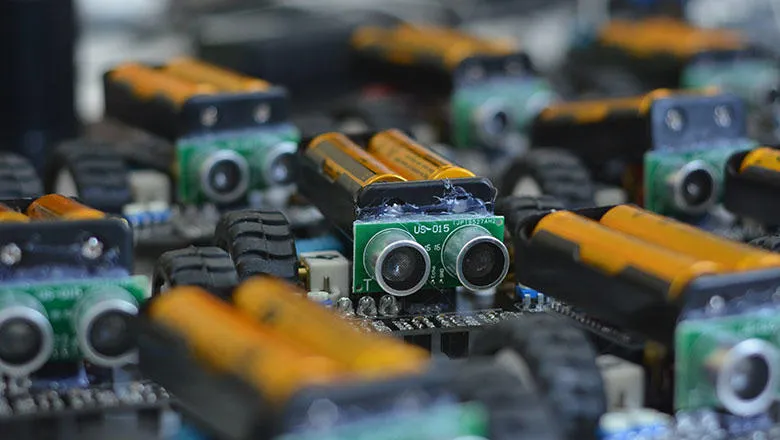
Events

Brain-inspired AI: from algorithms to hardware platforms
A seminar on brain-inspired AI from a leading researcher in intelligent computing systems.
Please note: this event has passed.
Features
Modelling the Minds
King's Institute for Human and Synthetic Minds co-directors talk about the research they’re doing to explore human and artificial intelligence and creativity.

Research

Communication & Information Engineering
Managing information and connecting human activities

Centre for Telecommunications Research
A global leader in telecommunications and data and information processing

Centre for Technology and the Body
Stories of embodied technology: from the plough to the touchscreen

Centre for Intelligent Information Processing Systems
Research centre focusing on intelligent information systems, encompassing hardware-software co-design, nanoscale information systems, signal processing, information engineering, and quantum information processing.

Climate & sustainability researchers at King’s
King's researchers working across climate and sustainability
News
King's joins UK's first brain-inspired computing innovation centre
King’s has joined the UK’s first Innovation and Knowledge Centre (IKC) dedicated to neuromorphic computing hardware, established following a £12.8 million...

King's engineers awarded prestigious grant to make AI more energy efficient
A project to reduce the cost in developing complex models by a thousand times has been awarded a multimillion-pound grant from the Advancing Research &...

King's draws together expertise to make the world healthier and advance our understanding of intelligence
Two new multidisciplinary research institutes have been created at King’s to help tackle major challenges for society and find innovative ways to advance...

King's collaborates with Purdue University to turbocharge semiconductor and AI innovation
The Memorandum of Understanding will deepen existing ties between the two institutions to accelerate research and education.

King's part of £80 million boost in AI research to deliver revolutionary new technologies
Nine research hubs across the UK will help underpin the country’s commitment to leading AI research, innovation and ethical deployment.

King's partners with industry leader Arm and UK Electronics Skills Foundation to solve UK's semiconductor skills shortage
The Innovate UK sponsored alliance will seek to bridge the gap between engineering education and industry expectations.

'Diversity is the key to innovation': King's ushers in next generation of engineers at first Girls into Electronics event
School age girls were invited to learn the basics of electronics and engineering at the Quad Labs earlier this month.

King's engineers to explore brain-inspired computing in 6G telecommunications
Neuromorphic computing holds significant potential for faster and greener telecommunications technologies.

King's engineers awarded prestigious research fellowships to make AI more trustworthy and sustainable
Dr Bipin Rajendran and Professor Osvaldo Simeone have each won Engineering and Physical Sciences Research Council (EPSRC) Open Fellowships to research...

Batteries, Bletchley Park and the brain: Interview with King's new engineers
How can batteries tackle climate change? How will AI benefit society? What happens at the interface of science and engineering?

Events

Brain-inspired AI: from algorithms to hardware platforms
A seminar on brain-inspired AI from a leading researcher in intelligent computing systems.
Please note: this event has passed.
Features
Modelling the Minds
King's Institute for Human and Synthetic Minds co-directors talk about the research they’re doing to explore human and artificial intelligence and creativity.

